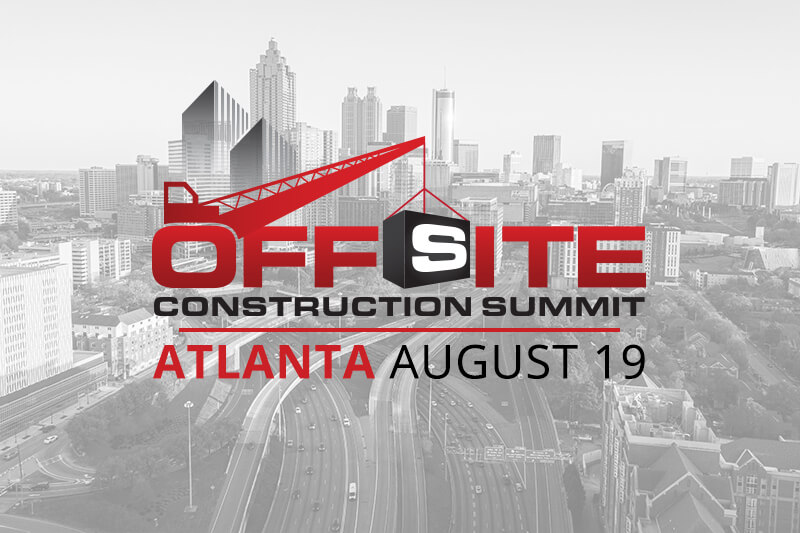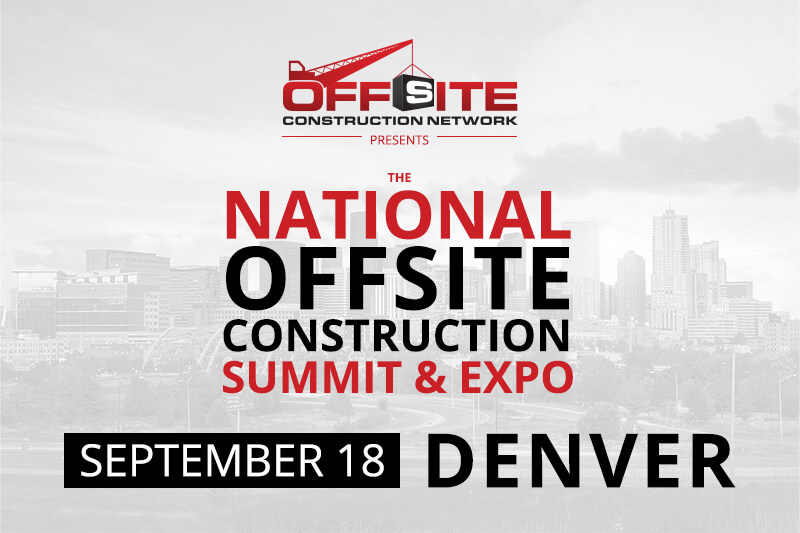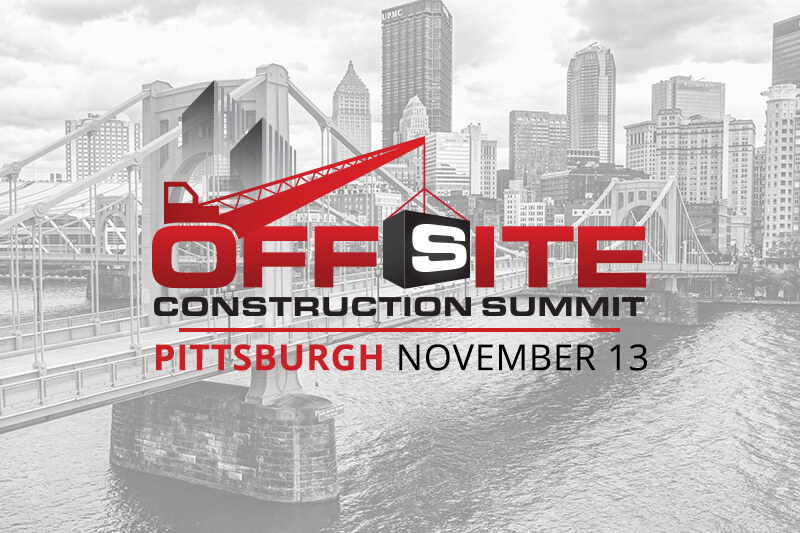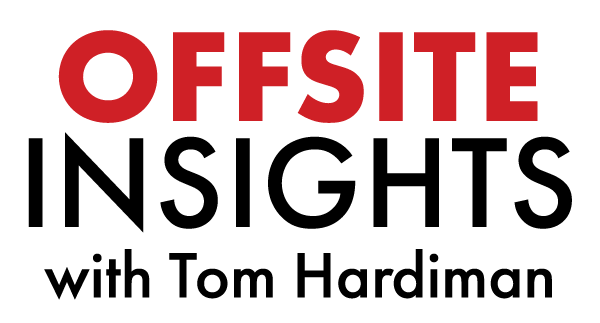
An Inside Look at Utah's New State Modular Program
An interview with Kam Valgardson, General Manager of Irontown Homes
Kam Valgardson joins Tom Hardiman to discuss his recent involvement in the creation of Utah's new modular building program and how such programs benefit not just the industry, but the states themselves. Kam also underscores the importance of in-person networking and face-to-face meetings to his company's success.
Interview transcript
Tom Hardiman
Hello, and welcome to another edition of Offsite Insights, the show where we talk to leading experts and professionals in the modular and offsite construction space. I am super thrilled to have with me today, Mr. Kam Valgardson from Irontown Homes. Kam, how are you doing today?
Kam Valgardson
Good. How are you, Tom?
Tom Hardiman
I'm doing well, thanks for asking. Hey, before we jump in, let's tell everyone who you are and what you do. I'm going to give you a little shout out on the front end because I know you won't mention that. Kam, you were recently named the Modular Building Institute's volunteer of the year and that was for all your efforts with the Utah legislature to get a statewide modular program passed. We're going to talk on that a little bit in a few minutes, but I just wanted to give a little shout out and thank you for your advocacy efforts on behalf of the industry.
Kam Valgardson
Well, thank you. I feel bad that it wasn't to volunteer team of the year because there was a dozen of us that were working from the industry. From the state government and representatives and their government. I feel bad that I got the accolade and it's really deserved by everybody that was involved. It was exciting. It's fun to be up on stage at our World of Modular conference and be able to share that stage with you for a brief minute.
Tom Hardiman
Well, we appreciate it. You're trying to run a business and for us to pull time away from you so you can get to talk to politicians about trying to make life better for all of us, we really appreciate it. We'll circle back to that in a minute, but first tell our listeners, who you are and how you got into this crazy modular business.
Kam Valgardson
That's a good question. So, I've been the general manager of Irontown Modular since 2015. It was actually a company started by my father back in the 80s. Previous to that my grandpa and my great grandpa, had actually been building modular in an old sugar beet factory in Utah Valley. My grandpa was a house mover, and his dad was a general contractor. They said, well, let's build some because we don't want to go up the canyon every day. So, they built them in in a sugar beet factory in Spanish Fork, Utah, and drove them up the canyon. So, it goes back years. I remember going to sites where my grandpa was moving houses with a bunch of World War Two vets, and it was just kind of in my blood from the beginning. So, I grew up working on different crews and in our small factory. I ended up playing football in a college environment at Brigham Young University, did construction management there. Then I went for an education in the industry, building track homes in Las Vegas. Now it was a great opportunity to learn production building and economies of scale. I really enjoyed that.
In 2007, everything changed. The economy just went bonkers, and things adjust but it was a blessing for me because I was able to come back to the family business and participate again in a leadership role. So, that was actually a good thing for me and my family. I'm responsible for all the operations of the company. I'm a father of five and a husband of one.
Tom Hardiman
Why did you say that?
Kam Valgardson
Well, a lot of people think the Utahns have more than one wife. I can only handle the one Tom. I can’t handle more than one.
Tom Hardiman
No, one is good.
Kam Valgardson
Yeah, that's what I've got. I've got my hobbies include coaching football for the local high school. My other hobbies are basically honey dues and whatever my wife and kids want to do. Those are my hobbies. So that's kind of me in a nutshell.
Tom Hardiman
Wow, that's amazing about your grandfather and great grandfather. We got to be going back to 40s.
Kam Valgardson
Yeah, right after the war. That's when they started moving houses and they were tough back then. They didn't have all the equipment we do nowadays. So, they were tough guys. I can tell you some stories, but I probably shouldn't if we're going to publish this.
Tom Hardiman
Let's keep that for when we see each other in Berkeley, which is my very sneaky segway. Your company, Irontown Homes, is going to be exhibiting at our upcoming June 5 event in Berkeley, California. Tell us a little bit about your company and what our attendees might expect to learn about Irontown.
Kam Valgardson
So, we are a perennial exhibitor at MBI events and I'll tell you why. We've always kind of been by ourselves here in Utah. There's not a ton of modular activity here and ever since we discovered MBI years ago, I've just been a real fan of the opportunity to network. To connect with the industry peers, industry leaders like you and your wonderful MBI staff. I just love rubbing elbows with them. I've been able to make great connections with service providers, designers, engineers, and material providers. So MBI has been a big blessing for our business because I feel connected to the industry now. In the past, we felt very much in a silo. So, I love to go to conferences.
The smaller conferences are great, because they're a little more intimate. We get some more one on one time with everybody. They are smaller and more regional, which is great. We attend the Berkeley conference in particular because a lot of our work happens in California. Being in Utah, we're actually very close to that market. But we're far enough away that we're not paying the same insurance rates, labor rates, and everything else that comes with being out on the coast. So, it's a great market for us and a great show for us. When folks come to see our booth, what they'll find is a midsize factory. We're about a 70,000 square foot factory and we produce units that are mid volume, we don't do low volume. We used to do some custom stuff that was very slow and we're not a real high output factory. We're kind of a mid-up factory. What that does is gives us the ability to do higher end and more complex projects at a medium scale. What customers will find when they come to visit us is a company who will be committed, will have knowledgeable experience, and we'll be able to help these mid-sized projects get off the ground. Midsize projects are often kind of left out. A lot of the factories just really want the big stuff. They want to run hundreds and hundreds of mods through. So, the path that we've chosen is more of a mid-volume path.
Tom Hardiman
Okay. I've heard you present several times in the past and you guys have done some worker accommodations, lodges and things like that for some national parks. What are you building in California? What's your market there?
Kam Valgardson
A good question. So, I'll just tell you what's on the floor right now and some recent jobs that we've done. Right now, we just finished delivering some employee housing down to Death Valley. There's a really cool resort right in the middle of Death Valley and we've delivered about 22, actually, it's 88 apartments for their employees. That one just finished up just last week. We've also got projects going to Aspen, Colorado, that are also employee housing units. We just finished big luxury townhomes in Big Sky, Montana. Those are going to sell for about 4 million a unit. So, they're going to be some high-end units.
Tom Hardiman
So affordable housing, but it depends on your income.
Kam Valgardson
It's affordable in Big Sky believe it or not. We've been really fortunate to be a part of the transitional housing project in Salt Lake. There's a homeless problem here, just like most big cities have. We're actually working on a four-story apartment building, it's going to be 40,000 square feet, and it's going to be giving a place for folks to kind of change their lives coming off the streets and getting into society in the proper way. That'll be the first apartment building in Salt Lake that's been done in a factory. We're also an award winner for the emergency sleeping cabins in California, which is also a homeless support project. They've yet to award so there's some bureaucracy that's holding that up. Then we've got a ton of single-family homes. We still sell a variety of single family homes direct to consumer that are out of our catalog and those go out to remote areas primarily. Of course, we've done a lot of adus over the last few years. They've kind of dried up with interest rates.
Tom Hardiman
All that in one factory?
Kam Valgardson
Yeah, all that in one. We wish it was more streamlined, but in the current interest rate environment, it's hard to just focus on one. You really have to be kind of broad right now.
Tom Hardiman
Yeah, well, that's smart. Glad to hear you're doing some of those homeless projects because you're right, it's a huge problem. I know governments across the country and particularly in California, are struggling to figure it out. I think there's even a case before the Supreme Court this week where can cities fine and jail homeless people? That's pretty harsh, but these cities are just struggling. They don't know what to do and a lot of it gets down to there's just no shelter. There's no shelter or not enough.
Kam Valgardson
We feel, and I'm sure you feel, we all have a modular bias. I just know how fast and easy it is to build housing. It's so fast and easy in a shop. It's easy to ship and it's easy to place. But the financing the government, government funds are just hard to find and hard to get allocated. Once they are, it's hard to pull that all together. So, I think the solutions are there, it's just can we get out of our own way?
Tom Hardiman
I know. I heard of a project in California to address the homeless situation. I think it was 122 units and it was $123 million. So, there's a million dollars a unit. It's like we've got to be able to do better than that.
Kam Valgardson
Yeah, that's crazy. The industry can and that's the problem. It can be done and we're choosing other paths. That's the challenge.
Tom Hardiman
Yeah. Well, maybe we can keep getting some successful examples out there from companies like yours and open some eyes. Well, let's circle back to that Utah legislation. So, because you're an offsite modular factory, you do most of the work in your factory. Closed panels, plumbing, electrical, and it's all concealed when it comes out of the factory. So, I'm saying this for the benefit of folks watching who don't know, I know you know. So there needs to be a way to inspect your building or your home when it comes out of the factory without tearing drywall out. So that's where these statewide administrative programs came in and Utah did not have one until recently.
Kam Valgardson
Right. Previous to this new legislation, if we wanted to build a home in a neighboring town, let's say Payson, Utah, I would have to go take my plan to Payson, Utah, just like any other site builder would have to, and run that plan through Payson. I would have to get a permit, get an approval and it takes one or two months of plan review to go through. Then if I wanted to build it in Springville, I'd have to start over to do it in Springville. If I build that again up in Ogden, I have to start over and go through that process. So, I would have to repeat that 250 times in order to be able to build in the entire state.
Tom Hardiman
That two-month, front end window every time?
Kam Valgardson
Yep. We’re adding time, cost, design, eyeballs, and wasting government time too. So, with the state government, we had some really wonderful people up at Ivory Innovations. It’s a think tank started by Ivory Holmes. They're a perennial developer here in the state of Utah and they said, hey, we need to get modular in the forefront. We can't have it continue to be this kind of alternative that people hear about here and there. They put their legislative crasher their lobbying pressure behind this initiative along with a bunch of other stuff that the government is doing. The governor of Utah has a plan to produce 35,000 starter homes in the next seven years. Our entire multifamily permit number is 7,000 a year. He basically wants to double that in starter homes and nobody's building starter homes. Everything that's being built are single families, all large move ups.
So, there's an initiative from him. The government's done some grants. They've got several programs that kind of interweave together to incentivize cities, incentivize developers, and they actually have some money set aside to help first time homebuyers. It's a loan, but it rides with the property, and it will basically pay your down payment. There's kind of a perfect storm being created by our leadership that's allowing it to be modular. As you know Tom, can really generate a large number of units in a short period of time with our economies of scale and our processes in the factory. This government program, what it’s doing is streamlining that 250-county process or city process down to one. We just have one state agency that approves the plan. It can go into any city or county in the entire state. All they have to do is look at the foundation site plan and we're done. So, the fees drop, the time drops, and we can take that approved plan anywhere in the state of Utah. So, we're hopeful that with all of these initiatives working together in a collaborative way, that we can really start to move the needle for housing affordability in Utah. But they're all necessary steps and they're big ones. These are big swings. I think you mentioned that there hasn't been a new state program in 25 years.
Tom Hardiman
Right. So that was big. We're starting to see more states do what Utah is doing. The government leaders coming together and saying, we've got to address housing. What can we do to incentivize modular or other forms of offsite? It creates jobs, it creates housing, it's a great formula for states. I know Colorado's doing something similar. The state of Virginia is trying to do that. When you can talk to the housing, the code officials, and the economic development people in the state and get them on the same page, you can start to create this successful formula. Good to hear.
Kam Valgardson
You really can. In the 60s, when you wanted cabinets in your house, a carpenter would drag in some one buys, some plywood, and it nails some hinges to them. Then you'd have these site built cabinets. Now we do this in a factory. We have beautiful cabinetry coming out of factories, tons of variety, high quality, very durable at a great price. Why are we stopping there? Why aren't we moving forward with homes, with buildings and putting them in factories? It's where the industry needs to go, but there's a lot of hurdles. Moving the status quo is a challenge. So, we're excited to be a part of that.
Tom Hardiman
That's a great analogy. We're just making a bigger box than the cabinets. Let's build a whole house that way.
Kam Valgardson
And we know how to ship them. We have trucks and trailers.
Tom Hardiman
There you go. Yeah, that status quo is a beast to overcome for sure. I know a lot of people trying to push in that direction. You being one of them and certainly the Modular Building Institute, you mentioned. I think we'll get there. I've been doing this for 20 years and it feels inevitable that it has to go in this direction given the challenges we have.
Kam Valgardson
Yeah, I always say, people say, well, this is the wave of the future. But I said, well, it's been the wave of the future for 20 years.
Tom Hardiman
Yeah, I know. I hate that term. Your great grandfather was doing it in the 40s.
Kam Valgardson
Let's make it the wave of the now. It's just hard to take a risk on million-dollar projects to do something new and different, even if there's a huge benefit. It's just a hard thing. So, I'm glad to see these moves by the government. In Utah especially they're not only getting out of the way, but they're actually putting some fuel in the fire. So, we're excited for that.
Tom Hardiman
Yeah, it wouldn't be great if governments would just give us a level playing field. It's even better when they can incentivize a few people. I'd be thrilled if some states back here in the Northeast just got out of the way instead of going the other way. They're piling regulations on top of us. And it's like I don't know what you're thinking, but it's not going to help. That's great to hear out of Utah. What else is going on? Anything else you want to share with us or any exciting news at Irontown?
Kam Valgardson
We're super excited to be working with MBI on these conferences. So, I don't know if your viewers are aware, but the offsite and construction summits that MBI does are very targeted towards geographic areas. We always hit Berkeley and Denver. Those are the two that we like because those are primarily in our service area. I just want your viewers to know Tom, that if they are interested in learning about modular, if they just want to cut their teeth, they want to broaden their horizon a bit, and they want to feel more confident to convince other stakeholders about doing the process, come to these conferences. They're just set up so well. They're very low pressure. It's a very low bar of entry to get in. Tom likes to have students come. We always see these students in these conferences as well and MBI does a real class act job on these conferences. I really hope that your viewers will get to them and be able to make the commitment. I see Colorado State at every conference that applies those guys there. They're always learning, and they've really caught the vision. They've made changes in their state to help everybody. So, I would just encourage all your viewers to do that.
Tom Hardiman
Thank you. Yeah, we have four of them this year. We've got Berkeley on June 5; I mentioned that one. We're bringing it to Minneapolis this year. It’s our first time trying that on June 20. You mentioned Denver. We've been in Denver four, five, or six years now. You're right about the state of Colorado. Several different departments tend to show up for that. We round it out in Atlanta in November. So yeah, do what Kam said and check us out. Regionally, we try to make them regional easy. One day in one day out. Heck, we even pay for your lunch. So, you can't beat that. Kam, I appreciate you joining me today and sharing a little bit about your company. That's really cool about your grandfather and your great grandfather. So, this modular thing isn't new after all. It has been around a while. I look forward to catching up with you in Berkeley at the Offsite Summit on June 5.
Kam Valgardson
Great. We'll see you there, Tom.
Tom Hardiman
Thanks so much Kam. We'll talk soon.
Don't Miss Our Upcoming Events!
Join the leading companies and professionals from across the offsite construction industry at each of this year's Offsite Construction Network events. With summits and expos taking place across North America in 2025, it's never been easier to connect with and learn from offsite construction manufacturers, designers, builders, and suppliers from the United States and Canada.
Subscribe today to get the latest updates on future events from the Offsite Construction Network.
